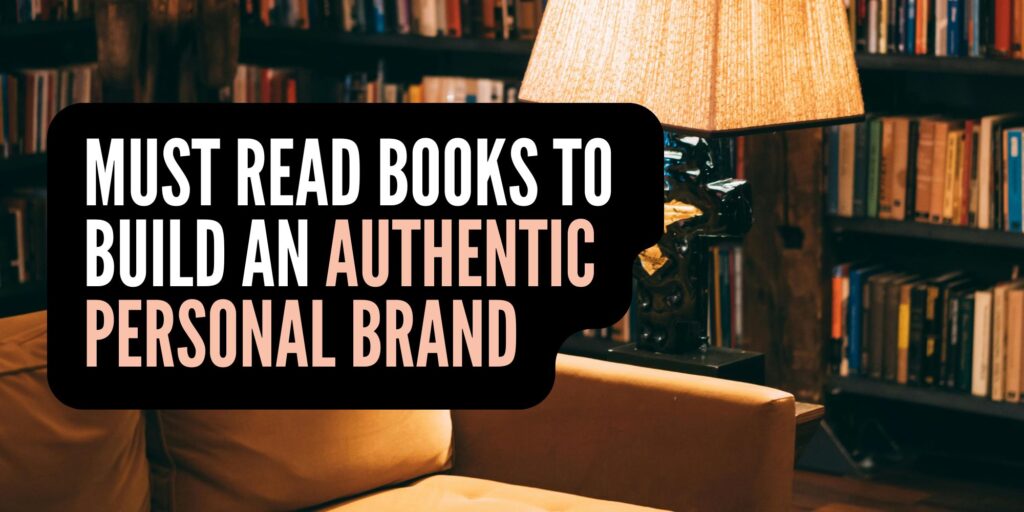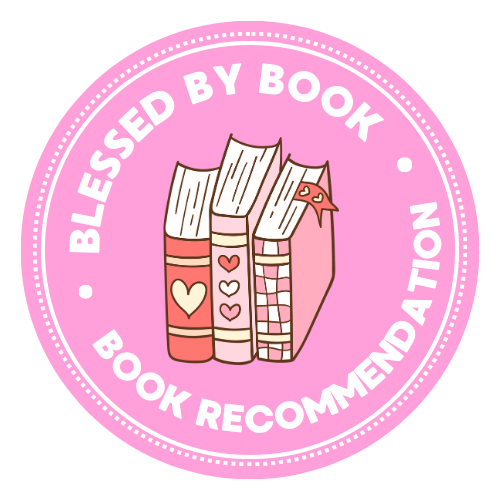Get a free notion reading tracker
The Best Personal Branding Books to Read in 2025
Did you know that 70% of employers use social media to screen candidates, a significant increase from previous years?
That statistic hit me like a ton of bricks when I first heard it! I’d been cruising along thinking my resume was enough, while potential employers were Googling me and finding… well, not much of anything impressive.
Personal branding isn’t just for influencers and celebrities anymore, it’s essential for anyone who wants to stand out in their field.
After spending years refining my own personal brand (with plenty of embarrassing missteps along the way), I’ve devoured just about every personal branding book on the market. Some were game-changers, others were complete wastes of time.
Today, I’m sharing the absolute best personal branding books that actually delivered results in my life and career!

Why Personal Branding Matters More Than Ever in 2025
Nobody cares about your qualifications as much as you think they do. Harsh, I know! But in today’s hyper-connected digital world, people are drowning in information and credentials.
What they really want to know is who you are and what you stand for. Your personal brand is essentially your reputation, it’s what people say about you when you’re not in the room.
I used to roll my eyes at the term “personal branding” – it sounded so fake and corporate.
But I’ve completely changed my tune after seeing how a strong personal brand opened doors I didn’t even know existed. Clients started coming to me instead of me chasing them. Speaking opportunities landed in my inbox.
In 2025, with AI taking over more routine tasks, your unique human perspective and expertise matter more than ever. Your personal brand is the difference between being seen as a commodity that can be replaced or as a unique individual with specific value to offer.
The mistake I made early on was thinking personal branding was just about having a nice headshot and a clever bio. It goes so much deeper than that, which is exactly what these books helped me understand.
“The Brand You 50” by Tom Peters
Tom Peters was eerily prescient when he proclaimed that we’re all CEOs of our own companies: Me Inc. Reading this book was like having a wise mentor shake me by the shoulders and say,
“Wake up! Your career is your responsibility and nobody else’s.”
The part that really hit home for me was Peters’ insistence that your brand must be authentic to be sustainable.
I had been trying to craft this polished, perfect online persona that was exhausting to maintain because it wasn’t really me. After reading this book, I scrapped my entire LinkedIn profile and rewrote it in my actual voice, sharing genuine stories from my career.
If you only read one book on personal branding, make it this one. Just be prepared to confront some uncomfortable truths about how you’ve been managing your career!
“Known” by Mark Schaefer
The four-step process he outlines – find your place, find your space, create your content, and create an audience – gave me a framework I could actually implement. Before reading this book, I was creating random content whenever inspiration struck and wondering why I wasn’t gaining traction.
The book also helped me get comfortable with the idea of “competing” in a crowded space. I used to think “Everything’s been said already” and would talk myself out of sharing my perspectives. Schaefer helped me understand that my unique combination of experiences creates a perspective that no one else has.
If you’re feeling overwhelmed by all the personal branding advice out there, “Known” will give you a clear roadmap to follow.
“Building a StoryBrand” by Donald Miller
I picked up “Building a StoryBrand” thinking it was for business branding, not personal branding. Was I ever wrong? This book completely transformed how I communicate about myself and my expertise.
Miller’s central premise is simple but powerful: position yourself as the guide, not the hero, in your audience’s story. This was a massive paradigm shift for me.
I had been trying to impress people with my accomplishments and expertise (making myself the hero), instead of focusing on how I could help them solve their problems.
The StoryBrand framework gave me a clarity I didn’t know I was missing. I rewrote my website, bio, and social media profiles using Miller’s seven-part framework, and suddenly conversations with potential clients became much easier.
My favorite takeaway was the “one-liner” exercise – crafting a single sentence that explains the problem you solve, your solution, and the successful outcome.
The book also helped me realize I was overwhelming people with too much information. I had this fear that if I didn’t tell them EVERYTHING I could do, they might miss something important.
“Influence” by Robert Cialdini
Let’s talk about the book that made me slightly uncomfortable but completely changed my approach to personal branding.
“Influence” isn’t marketed as a personal branding book, but understanding the psychology of persuasion is critical for building an effective personal brand.
Cialdini outlines six principles of influence: reciprocity, commitment/consistency, social proof, authority, liking, and scarcity. I realized I had been ignoring several of these in my personal branding efforts, particularly social proof and authority.
The principle of reciprocity was especially eye-opening. I had been holding back my best insights, thinking “Why would anyone hire me if I give away my knowledge for free?” Cialdini’s research showed me this thinking was backward. By generously sharing valuable content, I was triggering the reciprocity principle, people naturally want to give back to those who have given to them.
What I appreciate about this book is that it’s not about manipulating people, but rather how to understanding how human psychology works so you can present yourself effectively.
“Show Your Work” by Austin Kleon
Kleon’s approach is refreshingly simple: document what you’re doing, share your process and let people behind the scenes.
No need for perfectly polished content or putting on a persona. Just show your work as it happens.
I had been paralyzed by perfectionism, only wanting to share completed projects I was 100% satisfied with (which meant I shared almost nothing because nothing has ever been perfect for me)..
What I love most about Kleon’s philosophy is that it turns personal branding from a marketing exercise into a learning and teaching opportunity.
If traditional personal branding advice makes you cringe, this book offers a more authentic alternative that feels less like self-promotion and more like generous sharing.
“Atomic Habits” by James Clear
You might be wondering why a habits book is on this list of personal branding resources.
Trust me, I had the same question when it was recommended to me. But “Atomic Habits” turned out to be the missing piece in my personal branding journey.
Here’s what I realized: the most impressive personal brands aren’t built through grand, one-time gestures. They’re built through consistent, small actions over time. And that’s exactly what James Clear’s book helps you achieve.
My biggest personal branding struggle was consistency.
I’d get inspired, create a flurry of content, and then disappear for weeks when work got busy. Clear’s system of tiny habits and identity-based motivation changed that pattern completely.
What I love about Clear’s approach is that it takes willpower largely out of the equation. Once my personal branding activities became habits triggered by specific cues, consistency became automatic rather than a constant struggle.
If you struggle with showing up consistently (the true secret to personal branding success), this book provides the practical framework to make it happen.
How to Apply These Personal Branding Books in Real Life
Let me share something I wish someone had told me before I read my first personal branding book: reading without implementation is just entertainment.
I spent months highlighting passages in these books while making minimal changes to my actual personal brand.
- Start small. I made the mistake of trying to overhaul my entire online presence in a weekend and burned out quickly. Try to focus on one platform or aspect of your brand at a time.
- Find accountability. Whether it’s a friend, colleague, or coach, having someone who expects progress reports made a huge difference for me.
- Don’t get discouraged by slow growth.
- Experiment and measure. Treat your personal brand like a scientist would, testing different approaches and measuring results.
Remember that your personal brand will evolve as you do. What worked for me two years ago doesn’t necessarily work now as my focus and expertise have shifted. Be willing to reassess and adjust your brand as you grow.
Conclusion
Building a personal brand isn’t something that happens overnight, as much as we might wish it would! These books have been invaluable companions on my journey from virtual anonymity to being recognized in my field, but the magic happened in the application, not just the reading.
If you’re feeling overwhelmed by all these recommendations, start with just one book.
Based on my experience, “Known” by Mark Schaefer offers the most practical, step-by-step approach for beginners. If you’re more creatively inclined, “Show Your Work” might resonate more strongly.
Your personal brand is too important to leave to chance in 2025. These books will give you the framework to build an authentic, powerful presence that opens doors to opportunities you can’t even imagine yet. Your future self will thank you for starting now!



